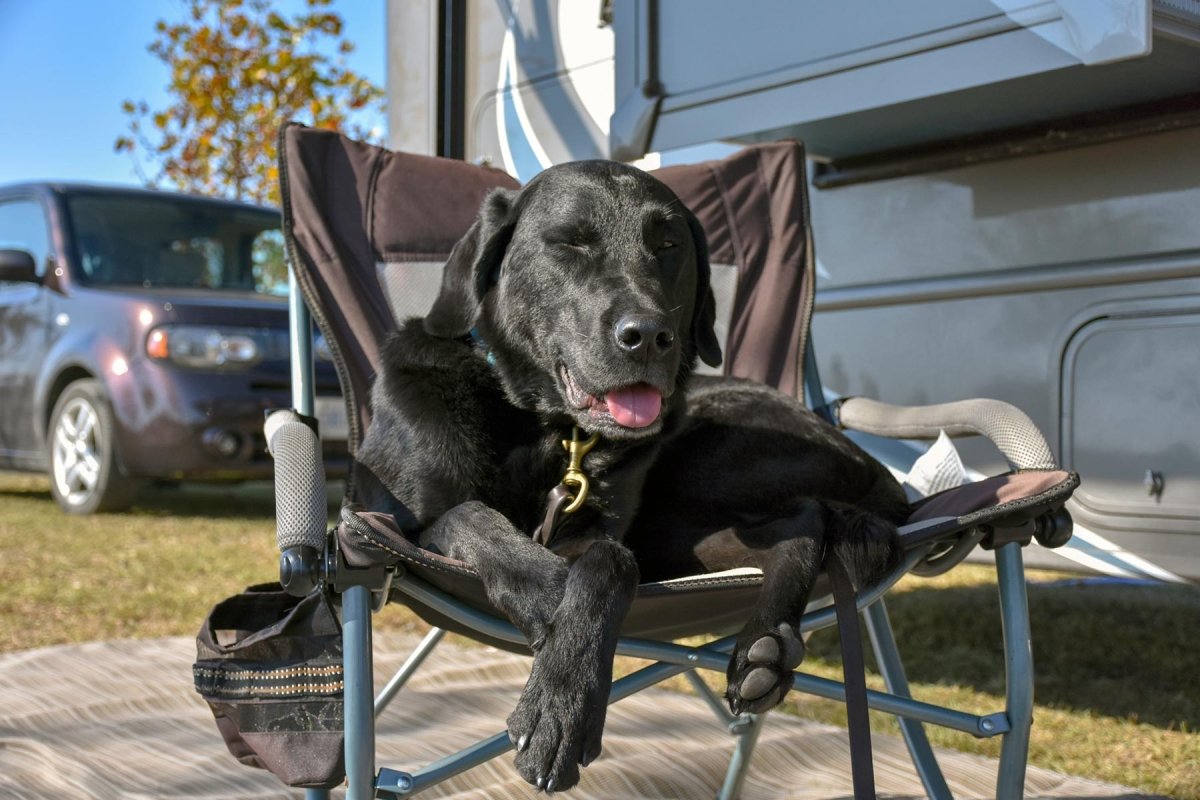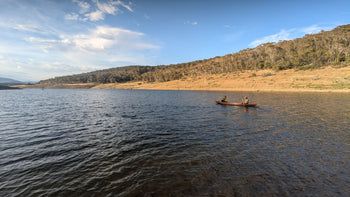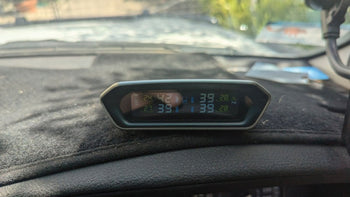

More and more mutts are accompanying their humans on camping trips in the great outdoors these days and there are a few things to keep in mind to ensure that everyone is safe and has a good time.

Prepare your pooch
You can never overprepare for an extended camping trip and that same principle applies to getting your pet ready for an outdoor adventure.
Before you head off, take your pet to the vet for an overall health check. Make sure their vaccinations, worming, flea and tick treatments are up to date, and stock up on any medications that they may need while you’re away.
Make sure they are microchipped and that your local council has your most up-to-date contact information. Ensure your pooch is wearing a collar with identification tags including contact phone numbers in the event they get lost.
Create a list of the essential items that you will need to pack for your pet including food/treats, drinking water, collapsible bowls, leashes, poo bags, bedding and toys. If you are boating or camping near water, you might want to consider a life vest for your woof.
If your dog is a long-haired breed, you may want to get them clipped before you go, especially if you are travelling to hotter climates, and to help prevent ticks and other nasties burrowing into their fur.
Regardless of whether you are heading off on a camping adventure or at home, your pooch should have some basic obedience training including commands such as sit, stay and come. Having voice control over your dog is essential for their safety if they suddenly decide to take off into a bush chasing something.

A socialised dog is a happy dog so ensure your dog is comfortable around other dogs and people to reduce their anxiety (and yours) during the camping experience.
If this is your dog's first camping trip, get them accustomed to the camping environment. Set up your tent or camper in the backyard and familiarise your dog with the area they’ll be sleeping and spending time in. Practice getting in and out of the tent/camper together.
Pet first aid
Just as a first aid kit for the humans in your camping party is an essential part of any kit, a pet first aid kit catering specifically to the fur babies is a good investment in the event of an emergency.
There are many hidden dangers in the bush such as wild dog baits, paralysis ticks, scorpions and snakes and these are a real concern for dogs.
Signs will indicate where 1080 baits — a highly toxic pesticide used to control pests in national and state parks and on farms — are laid but baits can be moved all over the place by other animals, so always keep an eye out. There is no antidote for 1080 poisoning so you must be vigilant. Invest in a muzzle that prevents your dog from scavenging food off the ground — even while on the lead.

Paralysis ticks are another problem and it’s worth getting into the daily habit of checking for ticks by running your hands firmly against your pet’s fur, especially around the ears, pits and stomach. If you feel any bumps, pull back the fur and check what’s there. To remove a tick, grasp it as close to the skin as possible with a pair of fine-tipped tweezers. With a steady motion, pull the tick out backwards. If your dog shows signs of poisoning, like wobbly legs, vomiting and laboured breathing, get them to a vet as soon as possible.
A pet first aid kit such as this one available from A247 Gear contains vital first aid supplies such as dressings, swabs, an emergency foil blanket and skin cleaning wipes. It also includes SURVIVAL’s smart bandage for managing snake and spider bites (including instructions for use), tick removal tweezers, shears and a thermometer among other key supplies to give you piece of mind in an emergency.
While travelling
Dogs should never travel in your caravan, nor should they travel unrestrained in the car.
Keeping your pet in a crate or dog seatbelt harness will help protect them and other occupants of the vehicle from injury in a collision.
When on the road, factor in regular rest breaks for exercise, food, water and play, and never leave a dog unattended in a car where they are vulnerable to heat stress.

Campsite etiquette
It’s estimated that up to 75 per cent of caravan parks in Australia today are pet friendly. Some even offer off-lead exercise yards and dedicated dog sites. But there are often restrictions on the size and number of dogs, and pets sometimes incur a surcharge. One popular camping spot along the Gibb River Road in WA’s Kimberley was recently charging $20 per pet per night!
Many pet-friendly caravan parks don’t allow pets at peak times such as summer school holidays, Easter and other long weekends, so always plan ahead and check. Be aware that dogs are not permitted in national parks and some state parks so do your homework and plan your itinerary accordingly. Remember to check each campground’s specific pet policies and any rules before booking.
When parked up at a campsite, consider buying a long lead with a spiral stake or portable fencing to give your dog extra freedom. Make sure they have ample shade and water (a few ice blocks won’t hurt in hot weather) and be mindful of dangerous wildlife and other hazards. If your dog sleeps outside the caravan, make sure they are in an enclosure, protected from predators such as snakes and dingoes. There are some cute doggie swags and other similar shelters available these days.
Try to camp near areas with dog-friendly beaches, off-lead parks and open spaces, so your dog will enjoy your holiday as much as you do. Investigate pet-friendly pubs and other public spaces. Follow leash requirements to ensure safety for all campers and their pets.
Be mindful of barking and aggressive behaviour. And please, pick up their poop.
Contribute to a positive camping experience by respecting other campers and maintaining the natural environment.

Leaving your pet
You may need to leave your pet at some point on your adventure. Pets are better off supervised so it’s not a good idea to leave them in an air-conditioned caravan all day or tied up under the awning.
If you are planning a day or overnight trip, organise for someone to mind your dog. Enquire at reception or at the town vet about local dogsitters, ask your fellow caravanners (you may be able to reciprocate) or join Facebook caravanning groups or similar where you can connect with like-minded travellers who may look after your dog (there are specific groups for people travelling with pets). Local boarding kennels or vet clinics with boarding facilities are another option.
If you’re desperate and can’t find a free sitter, you may need to pay for one. Mad Paws is a national community of pet sitters with a database of more than 55,000 minders who will take care of your dog for a few hours or a few days, for a fee. Rates start at $16 a night (the service is fully insured) and you can meet your pet sitter before you commit.
Travelling with pets on Australia’s east coast is available from the A247 website and is a great resource for those travelling with pets.
Good planning and preparation will ensure your next camping trip with your four-legged friend is a successful trip.



